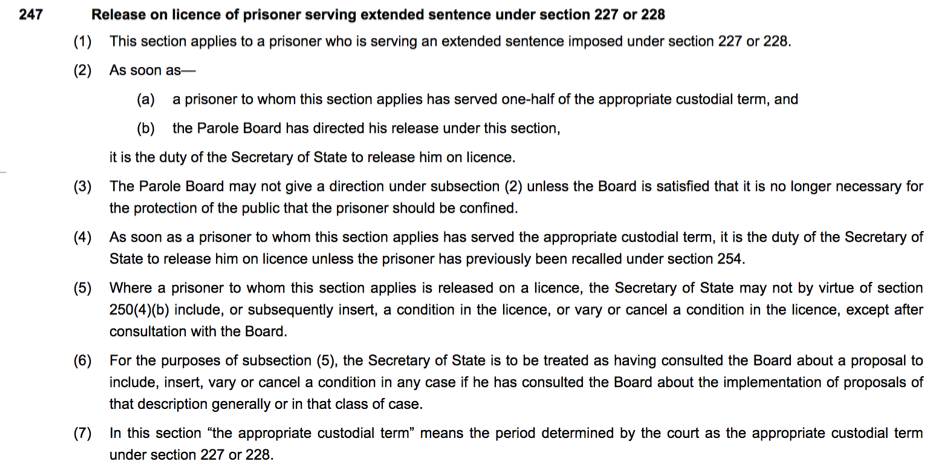Boris Johnson sets out the details of the Khan case
Read original Twitter thread from Boris Johnson here
The terrible Khan case has highlighted a complicated area of law. There have been many inaccuracies reported about this case over the last 24 hours. Here are the details.
There are 4 distinct sentencing legal regimes that have been confused in this case: Indefinite Sentences for Public Protection (IPP); Pre-08 Extended Sentences for Public Protection (DPP); Post-08 EPPs & Extended Determinate Sentences (EDS) which came into force in Dec 12.
All those regimes have in common is the fact that they apply if the Judge considers the offender to be dangerous.
An EPP has two elements: a custodial part and an extended licence period. When EPPs were brought in by the Criminal Justice Act 2003, there was no automatic early release during the custodial part - see s. 247(2)(b) of the original act.

In 2008 Labour introduced the Criminal Justice and Immigration Act 2008. This removed the requirement of Parole Board approval. This meant that, for EPPs after 2008, release would be automatic at the halfway point - no matter how dangerous the criminal.


Khan was sentenced by the Crown Court on 9th February 2012. He was considered dangerous by the Judge and so the two possible options available at the time were IPP or Post 2008 EPP. The judge opted for IPP with a minimum term of 8 years.
This means Khan would be detained indefinitely after he has served the minimum term unless the Parole Board considered him safe. Khan appealed. The Court of Appeal agreed that he was dangerous but felt that his crime was not serious enough to warrant an IPP.
However, since the judges still considered him to be dangerous he got an EPP. The Court of Appeal could not have given him an EDS because these were not in force when he committed the offence in December 2010.
Khan was sentenced under Labour’s old regime. Therefore, he was to be automatically released after serving only half of his sentence (i.e. 8 years). Given time on remand, this meant he was released in December 2018.
Had the 2008 changes to the law not been made he would not have been eligible for automatic early release, instead the Parole Board would have had to decide whether he was safe to be released.
If Khan had been sentenced under the new EDS scheme there would have been no automatic early release and he would only have been able to ask for Parole Board consideration at 2/3rds of his sentence. Under this system, he could not have been released before Mid 2021.
Unfortunately, Khan could not be sentenced under the EDS scheme because it was not yet in force in December 2010 when he committed the offence. Had Labour not changed the law in 2008 Khan would not have been automatically released in December 2018.
A number of people have pointed out that the judgment of the Court of Appeal makes a reference to the Parole Board. If you look at the whole quote it’s clear Lord Justice Leveson is not even talking about Khan.

Nowhere in the judgment did Lord Justice Leveson suggest that Khan’s release would have been subject to the Parole Board approval. Indeed, Lord Justice Leveson did not have the power to require that because of how Labour changed the law in 2008.
Those changes meant that although four senior judges considered that Khan was dangerous, he was to be automatically released half-way through because of Labour’s 2008 law. That is why we are determined to change this & ensure dangerous terrorists serve their full sentence.